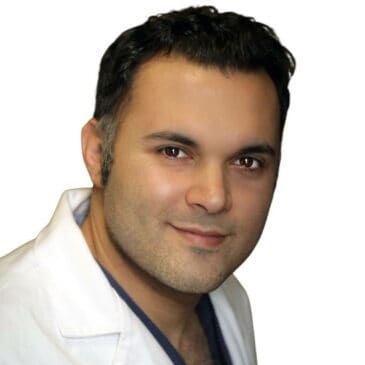Often known as “the sun vitamin,” vitamin D is unique because it doesn’t need to come exclusively from diet sources. But what happens when your outdoor time is not cutting it? Shorter days and hectic schedules put us at a higher risk of vitamin D deficiency, with all its health effects.
The easiest way to reverse this is through vitamin D injections. When properly administered and under a doctor’s supervision, vitamin D shot benefits include regaining your energy levels, protecting your bones from further damage, and keeping other complex conditions in check.
What is vitamin D?
Vitamin D is a fat-soluble vitamin that plays a role in heart, brain, and bone health, and immune system function.
Unlike other vitamins, it doesn’t need to come from dietary sources. In fact, there isn’t much vitamin D available in nature: it is found in some types of fatty fish, beef liver, and fortified dairy or cereals. However, your skin can produce it after direct exposure to sunlight. If you are vegetarian, vegan, or don’t like fish, you’ll probably rely on sunshine for most of your vitamin D intake.
There are five different forms of vitamin D or vitamers. The two most common ones are ergocalciferol (vitamin D2) and cholecalciferol (Vitamin D3). Most vitamin D shots are made from vitamin D3, while oral supplements often contain a mixture of D2 and D3.

What’s the role of vitamin D?
The body uses vitamin D for four main functions: to help absorb minerals from the diet, to strengthen the immune system, to balance the cardiovascular system, and to maintain brain structures.
Vitamin D – especially as cholecalciferol – helps the stomach absorb and store calcium, phosphate, phosphorus, and magnesium. Without enough vitamin D, these minerals will largely “pass through” the digestive system, opening the door for childhood rickets, osteomalacia (softening of bones), muscle weakness, and osteoporosis (porous and brittle bones).
Both vitamin D and these minerals also help regulate heart function and rhythm. Low vitamin D levels can cause chronic high blood pressure, raise LDL (or “bad”) cholesterol levels, and increase your heart disease risk. All these conditions are bad news, especially for people who also suffer from obesity or diabetes and are statistically more likely to develop vitamin D deficiency.
Several studies show that vitamin D can also help improve immune function, although we are unsure how exactly it works. We know the body uses vitamin D to create white blood cells and fight infections — but increased baseline concentrations of vitamin D also help manage the symptoms of autoimmune diseases.
Finally, there’s the brain, which has a lot of vitamin D receptors. For expectant mothers, vitamin D seems to protect babies from brain malformations. Low vitamin D levels are one of the strongest factors behind seasonal depression or seasonal affective disorder (SAD).
What are vitamin D3 injections for?
Vitamin D supplements — especially as an intramuscular or IV injection — can quickly reverse vitamin D deficiency symptoms. Typical telltale signs of vitamin D deficiency include:
- loss of bone density
- low levels of calcium, despite taking calcium supplements
- frequent bone pain or aches
- insomnia and sleep disorders
- hair loss
- muscle weakness
- frequent colds and infections
- depression and mood swings
- low appetite
- cravings for fatty foods
Except for bone problems, these are all pretty non-specific symptoms — that is, they can be caused by various vitamin deficiencies or underlying conditions. So, how do you know the culprit is vitamin D?
The most precise way is to have your vitamin levels tested using a blood test. But getting your vitamin levels tested all the time is invasive and costly. Instead, look at whether you fall into any of the “high-risk groups” most likely to develop vitamin D deficiency.
Are you low in vitamin D?
Due to poor eating habits or general stress, anyone can develop any nutritional deficiency. But the following conditions and situations can increase your risk of vitamin D deficiency:
- Living in a very northern or southern region, with very few hours of sunlight during the winter.
- Conditions that force you to avoid sun exposure — such as rosacea, lupus, or a family history of skin cancer.
- Vegetarian or vegan diet.
- Avoiding dairy.
- Digestive malabsorption problems, such as Crohn’s disease.
Purchase Any 4 IV's
Or Injections & Get The 5th Complimentary
Call +1-877-760-3564
Or Click Here to Send Us Email

Choosing the right type of vitamin D
Vitamin D supplementation can be done via oral supplements, intramuscular injections, or intravenous (IV) therapy.
Out of these methods, injections and IV supplements offer the best absorption, the tightest control over dosage, and the fastest results. The first step is to see a doctor for a full assessment, which will help determine the right dose, delivery system, and how often to get vitamin D shots.
Here at IV Vitamin Therapy, Dr. Nazarian and our highly trained nurses we will look at your overall health status as well as your priorities, goals, and lifestyle.
Vitamin D injections
Intramuscular injections are quick and to the point (no pun intended). They help us deliver a large quantity of vitamins in just a few minutes. As your body can usually only store so much vitamin D at a time, you will probably need to come back for another shot in a few months.

For example, if your main problem is seasonal depression and you keep a busy schedule, your best bet may be a quick high-dose cholecalciferol injection right at the start of fall, followed by a “booster” a few months after.
The first step in your treatment is a consultation. If we decide vitamin D injections are the best option for you, we can give you the shot right away and be done within minutes. They’re administered just like a flu shot, with a quick jab to the arm.
IV infusions of vitamin D
Intravenous administration usually takes a bit longer than a single shot, but it allows us to create a tailored cocktail with several nutrients.
This is useful if you’ve had weight loss surgery, which raises your risk of other nutrient deficiencies. Suppose you are planning to become pregnant or breastfeed, in that case, we can also add Vitamin C, folic acid, or amino acids to your vitamin cocktail — ensuring strong bones and better brain development for your future baby.
For a vitamin IV infusion, we will first need to set up an IV access on your arm or the inside of your elbow. This is done by one of our highly-experienced, gentle RNs. Then, we will let the infusion bag run for 20 to 60 minutes. During this time, you can sit in one of our waiting lounges, listen to relaxing music, catch up on work or reading, or just take a quick nap.
Are there any side effects of vitamin D?
Vitamin D injection side effects are usually very mild, but they do exist. The most common one is some soreness at the injection site. Occasionally, some patients get mild headaches or dizziness on the day of injection. This will most likely go away by the next day, but if it doesn’t – just give us a call.
Intramuscular and IV vitamins are less likely to cause digestive problems, such as constipation, bloating, or cramps, compared to vitamin tablets because they bypass the stomach.
That said, vitamin D toxicity exists and could potentially be dangerous — but it is also incredibly rare. Only get your vitamin injections or infusions from reputable, licensed medical professionals like Dr. Nazarian. This will ensure your dosage is kept at safe levels.
Symptoms of vitamin D toxicity include:
- hypercalcemia (too much calcium in the blood)
- vomiting
- muscle weakness
- frequent urination or urinary discomfort
During our initial assessment, we will ask about your regular diet and lifestyle and any other conditions you may have. If you have kidney disease or take daily calcium supplements, we will adjust our doses accordingly.
IV Vitamin Therapy — The top option for vitamin D injections near LA
At IV Vitamin Therapy, Dr. David Nazarian has built a relaxing haven for patients seeking to boost their mental and physical health, productivity, and well-being.
Dr. Nazarian is a board-certified internal medicine specialist with extensive experience with traditional and supplementary therapies. He specializes in administering easy-to-absorb, custom vitamin combinations.
For his team, the goal is not to simply give you a vitamin D3 injection and send you on your way. Instead, we take a holistic approach that ensures you will get the nutrients that you truly need as part of a spa-like experience.
The clinic also offers a mobile IV therapy service, which can deliver vitamin D injections at home, hotel room, or office across the Los Angeles Area. A nurse will come to your home, set you up, and check everything is going well while you cross off a few errands.
Our clinic is located in Beverly Hills and serves patients in Bel Air, West Hollywood, Santa Monica, West Los Angeles, Culver City, Hollywood, Venice, Marina del Rey, Malibu, Manhattan Beach, Redondo Beach, Downtown Los Angeles, Encino, Woodland Hills, Sherman Oaks, Calabasas, Burbank, Glendale, Hidden Hills, Agoura Hills, Northridge, North Hollywood, Topanga, Canoga Park, Reseda, Valley Glen, Chatsworth, West Hills, Orange County, Winnetka, Universal City, Silverlake, and Echo Park.
Purchase Any 4 IV's
Or Injections & Get The 5th Complimentary
Call +1-877-760-3564
Or Click Here to Send Us Email


